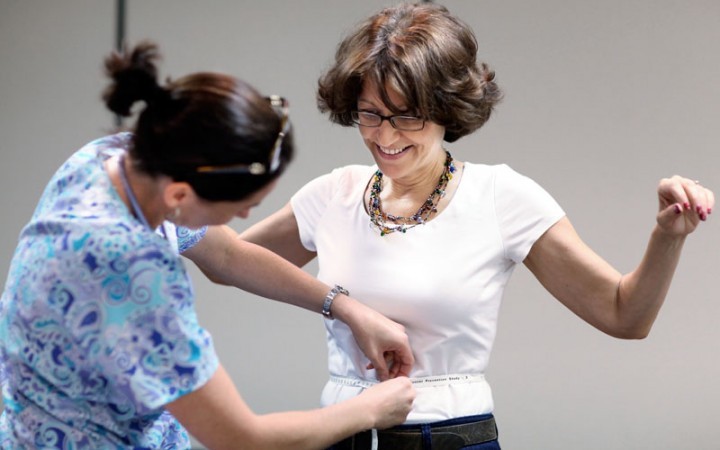INDIAN RIVER COUNTY — The American Cancer Society’s annual Relay For Life events not only provide a constructive way to remember lost loved ones and to celebrate survival, but also raise funds for cancer research and raise hope that someday cancer will become as rare as polio or smallpox.
This year, the Relay For Life of North Indian River County in Sebastian will be an enrollment site for groundbreaking research in cancer prevention, referred to as the CPS-3 study.
Enrollment in CPS3 began in 2006 when local people who had never been diagnosed with cancer were signed up at the Vero Beach High School Citrus Bowl Relay For Life event.
Now, the next wave of participants is being asked to enter the 20-year, nationwide program.
“We would like to sign up between 160 and 189 people,” said ACS spokesperson Theresa Woodson of the Vero Beach office, adding that 189 is the maximum number the site can accommodate Friday.
Studying people across a broad segment of the population who have never had cancer, the ACS hopes, will give them scientific tools with which to detect the potential for cancer very early, to prevent cancer from taking hold, and give the world “more birthdays” by reducing deaths from cancer.
“CPS-3 will help researchers better understand the lifestyle, environmental, and genetic factors that cause or prevent cancer,” said Kim Crowe Hockenberry, who is both a registered nurse and a certified oncology nurse at Sebastian River Medical Center, where she’s worked for 27 years.
Hockenberry is heading up the CPS-3 enrollment at the North County Relay For Life site with 17 other local healthcare professionals who are donating their time on Friday to confidentially sign up participants for the study.
She has recruited nurses, a respiratory therapist and even a nursing instructor – all people who she said work daily with patient privacy issues and who know how to respect the personal nature of the information being collected.
By the time study participants complete enrollment in the tent, their information will be assigned a number and their names will no longer be associated with the data.
Technology has greatly increased the potential to store and relate information collected from test participants, Hockenberry said.
Despite the fact that the data will be computerized, she said volunteers should not be concerned about the American Cancer Society having their information because, she said, the ACS has not had a breach of its confidential study information in more than 50 years since it began involving volunteers in its research.
Hockenberry said the information “will not be shared with any insurance companies or anyone else.”
“To enroll in the study, individuals will be asked to read and sign an informed consent form; complete a comprehensive survey packet that asks for information on lifestyle, behavioral, and other factors related to your health, have your waist circumference measured and give a small blood sample.”
The blood is frozen for testing down the road if a study participant, or one with similar characteristics or medical history is diagnosed with cancer. The goal is to isolate and identify cancer markers that are not yet known by the cancer researchers.
Data from participants is logged and tracked by American Cancer Society researchers in Atlanta.
Dr. Lauren Teras works on the CPS-3 study and said that scientists follow up with participants every two to three years to determine if there have been significant developments in their health or changes in their lifestyle, exercise habits or weight.
The CPS-3 program is the most recent addition to a long tradition community-based research conducted by the ACS which has netted invaluable insight into cancer prevention.
“For nearly 60 years, the American Cancer Society has conducted some of the world’s largest cohort studies to understand how cancer develops in a population, identify the causes of cancer and ultimately, learn how to prevent it,” Teras said. “The Hammond-Horn study, our first American Cancer Society cohort, was one of the first to identify that smoking cigarettes is associated with higher risk of developing lung cancer and dying prematurely. This information contributed to the scientific evidence that led to the Surgeon General’s Report, helped motivate smoke-free laws, and has contributed to other aspects of cancer control.
A total of 188,888 people participated in that first study. Then 1 million people each signed on for the CPS-1 study in 1959 and 1960 and 1.2 million for the CPS-2 study in 1982. Those studies only tracked participants for mortality.
The CPS-3 study is different, as it will look for not only deaths from cancer and other diseases, but for diagnoses of different types of cancer.
Oncology nurse Hockenberry said participants who have other conditions are welcome to sign up, just not cancer as it’s a prevention study.
Due to the more in-depth tracking of participants and the blood draws, the goal is to enroll up to 500,000 people.
What motivates her and the other volunteers to work so hard for the American Cancer Society is seeing the ravages, the costs and the inconvenience – the lives interrupted – by cancer.
“We see all the time how cancer affects families and patients,” she said. “It’s a great opportunity for people who have been affected by cancer in their families to make a difference.”
For more information, visit www.cancer.org/cps3, or call toll-free (888) 604-5888.

